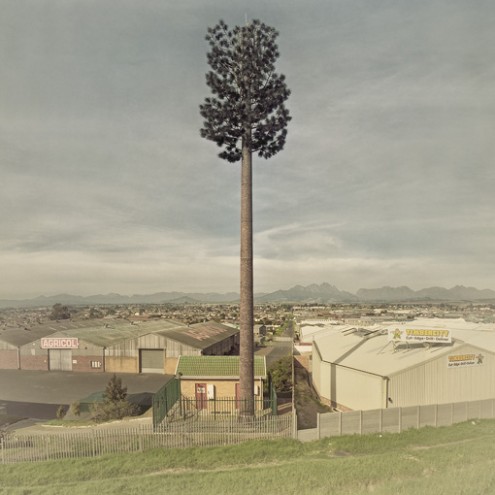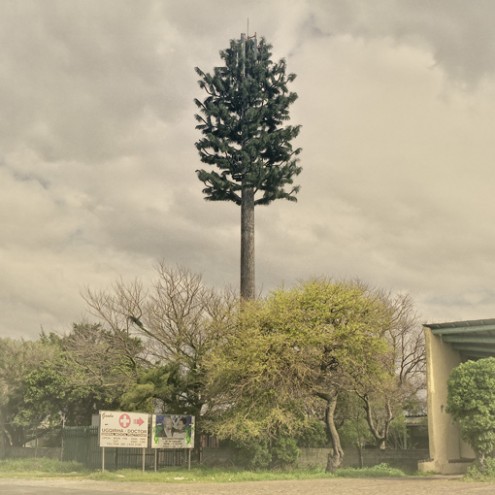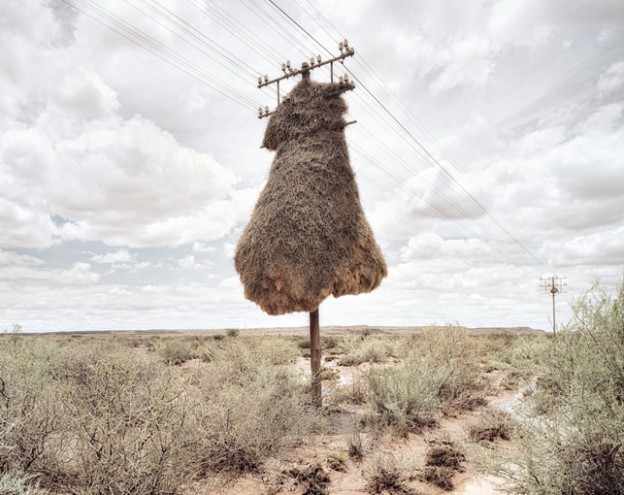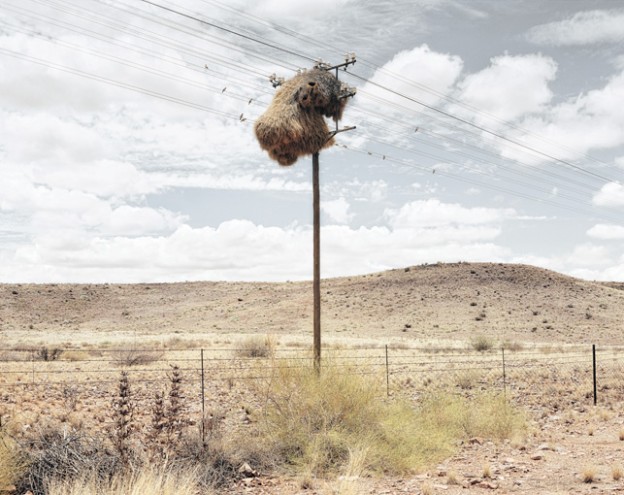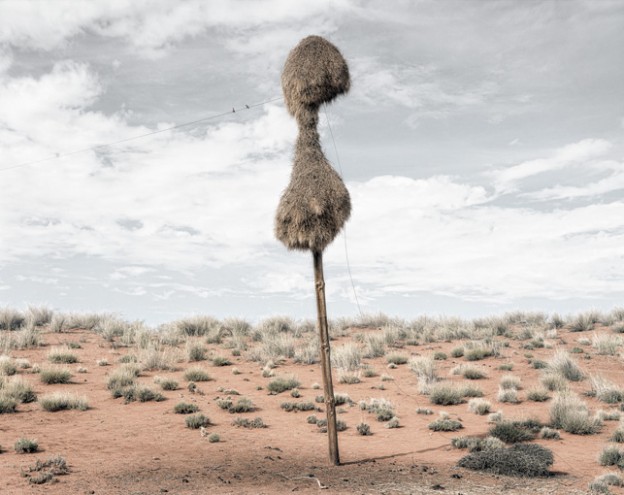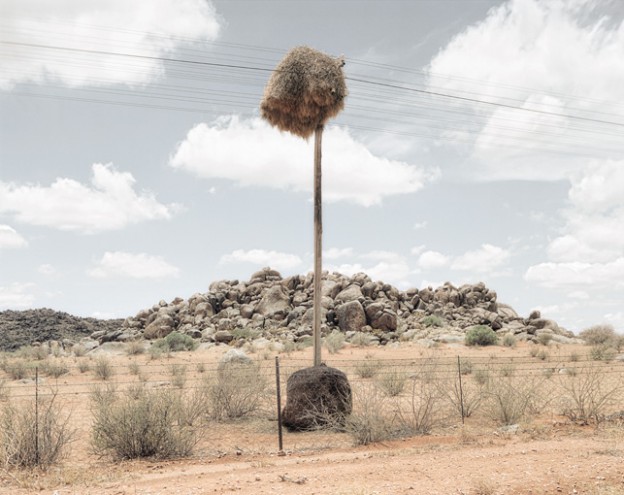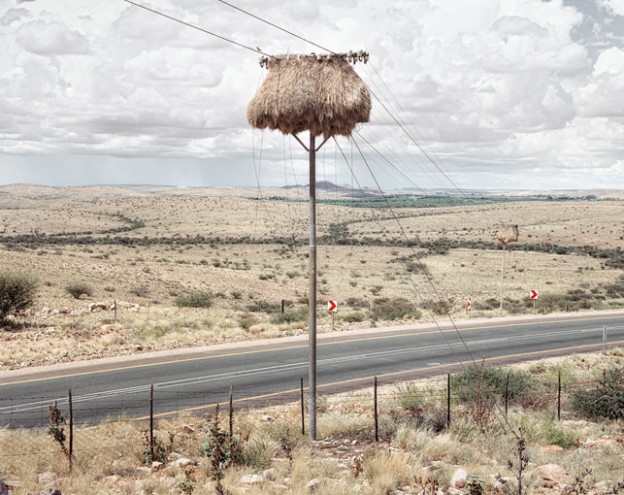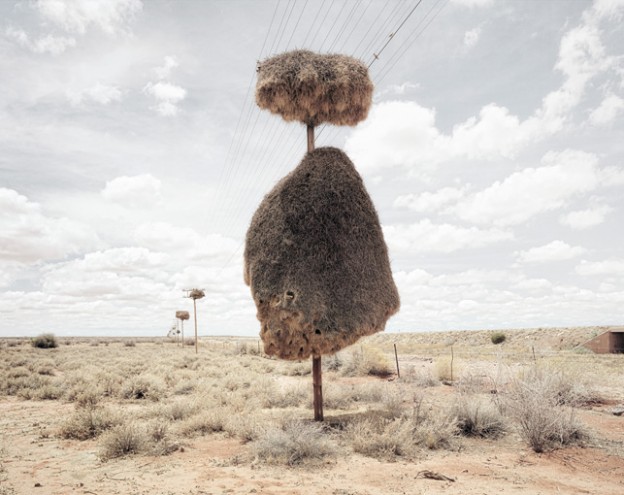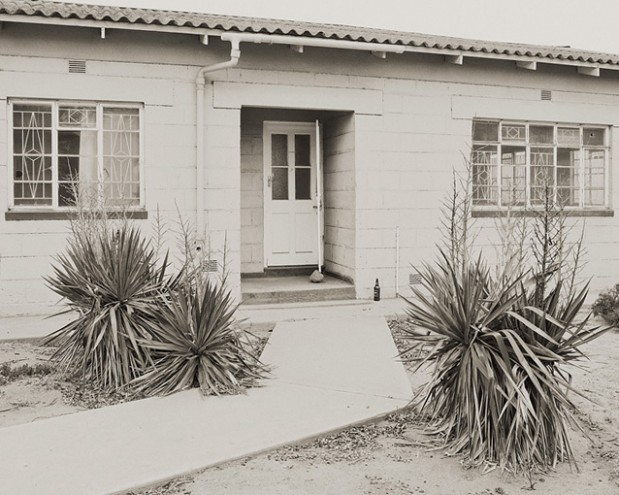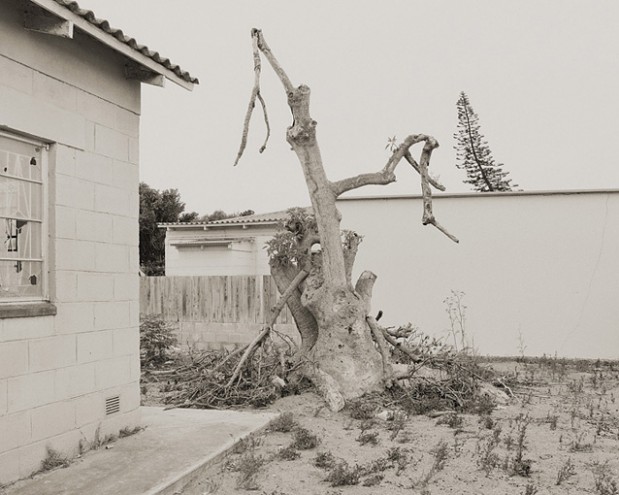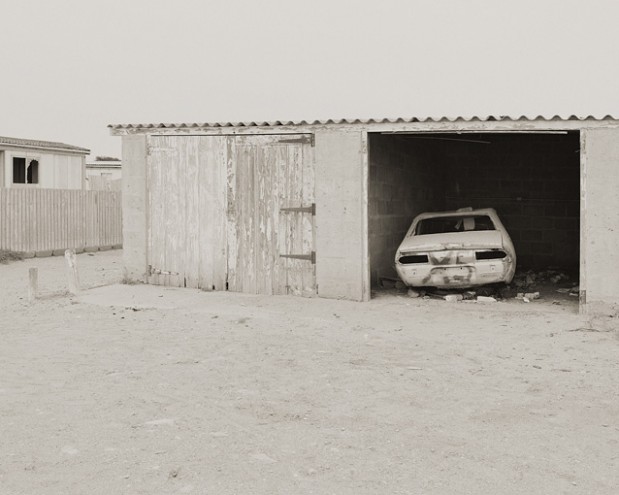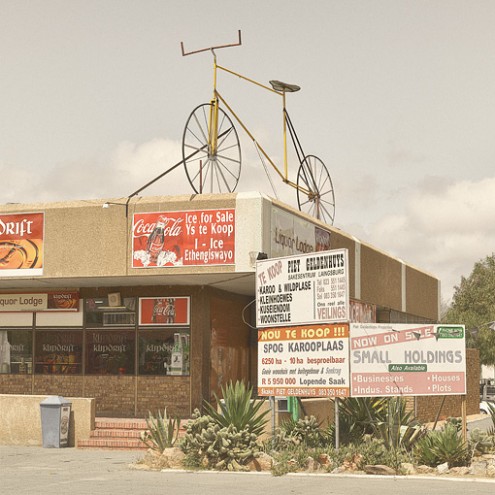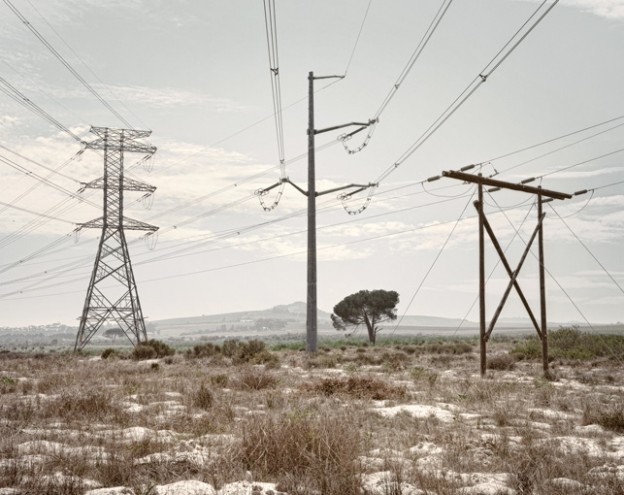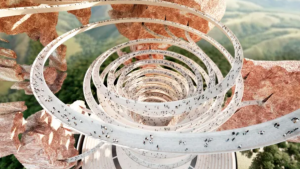“A picture speaks a thousand words” is surprisingly apt when considering the work of Cape Town photographer Dillon Marsh.
To explain why and how his photographs of things like electric pylons, cellphone towers and giant bird nests are uniquely mesmerising, you would need a thousand words to pinpoint it exactly. But the moment you see one such photograph it becomes perfectly clear why Marsh’s work is gaining rapid ground, both locally and abroad.
Just recently Marsh was announced as one of five winners (out of approximately 360) in the international Popcap competition, focussing on African art. The win means his work will be exhibited in Basel, Dublin and Lagos over the next couple of months. Then there is the exhibition Present Tense in Lisbon, Portugal that he will be participating in. This exhibition also focuses on portraits of African identity.
With the theme of African identity forming the golden thread between Marsh’s exhibitions, he points out that his work does not necessarily focus on the people of Africa or an African aesthetic per se. He reckons though that the African theme might make his work more approachable as a subject for international audiences.
“My interests are connected to where I live and travel. And I do most of my travelling in South Africa,” Marsh rationalises. He is unconcerned about his work conveying a specific message, and prefers to determine his own creative direction.
“As an artist my main direction is landscape ranges. I like to look for features within a landscape that are repeated, but that also tell us something about our [human] relationship with the environment,” says Marsh. “And things that are unusual,” he adds.
Like his Assimilation series, which looks at the nests of the Sociable Weaver Birds in the vast landscape of the southern Kalahari. Marsh explains that these birds take ownership of the telephone poles in their habitat, building their nests on and around the poles. “The twigs and grass collected to build these nests combine to give strangely recognisable personalities to the otherwise inanimate poles.”
Marsh’s photographic series of cellphone towers disguised as trees, Invasive Species, is an example of his affinity for the unusual. “The reality is that we probably see these things every day. It’s easy to overlook certain things. I do like to try and find things that are recognisable to us, rather than things that are entirely new to us. I try and present it in a new way, or in a way that make you look at them differently.”
In Means To An End Marsh photographed the electricity pylons that criss-cross around Cape Town. He says he was “drawn to the seemingly haphazard variations of their designs and the cryptic reasoning behind their structuring”. While the pylons are the main feature in the photographs, Marsh also manages to capture something of the landscape in which these structures are found, while simultaneously evoking a sense of nostalgia.
There’s also a hint of humour to be detected in Marsh’s work. His Giants Among Men series is an ongoing body of work that documents large manmade objects modelled on everyday things. There’s the giant strawberry outside a farm stall, the larger-than-life wine bottle, the bicycle on the roof of a corner shop and the massive guitar outside the music store, all serving as symbols, icons and markers for passers-by.
Marsh only recently started pursuing his craft full time, after resigning from his job as a photo retouch artist. Marsh graduated from Stellenbosch University with a Fine Art degree in 2003. Since then he had been doing art on the side and gradually started doing more self-initiated projects and seeking more opportunities for promoting his work. Two such opportunities came in the form of Design Indaba’s Emerging Creatives programmes in 2010, and the Spier Contemporary festival in the same year. This set Marsh on the path to doing more exhibitions and, eventually, dedicating himself to photography more fully.
For his most recent project, Diamonds Aren’t Forever, Marsh travelled to the mining areas on the Diamond Coast of South Africa (in the Northern Cape). With many of the mine workers in this area being retrenched and leaving to find work elsewhere, the small towns that service the mines are showing signs of neglect and desertion. His photographs capture this sense of abandonment and unease.
Marsh’s work, it appears, is a natural extension of his love for travel, his passion for landscape and his curiosity about the human connection to the environment. And for now he is happy going in his own direction.



